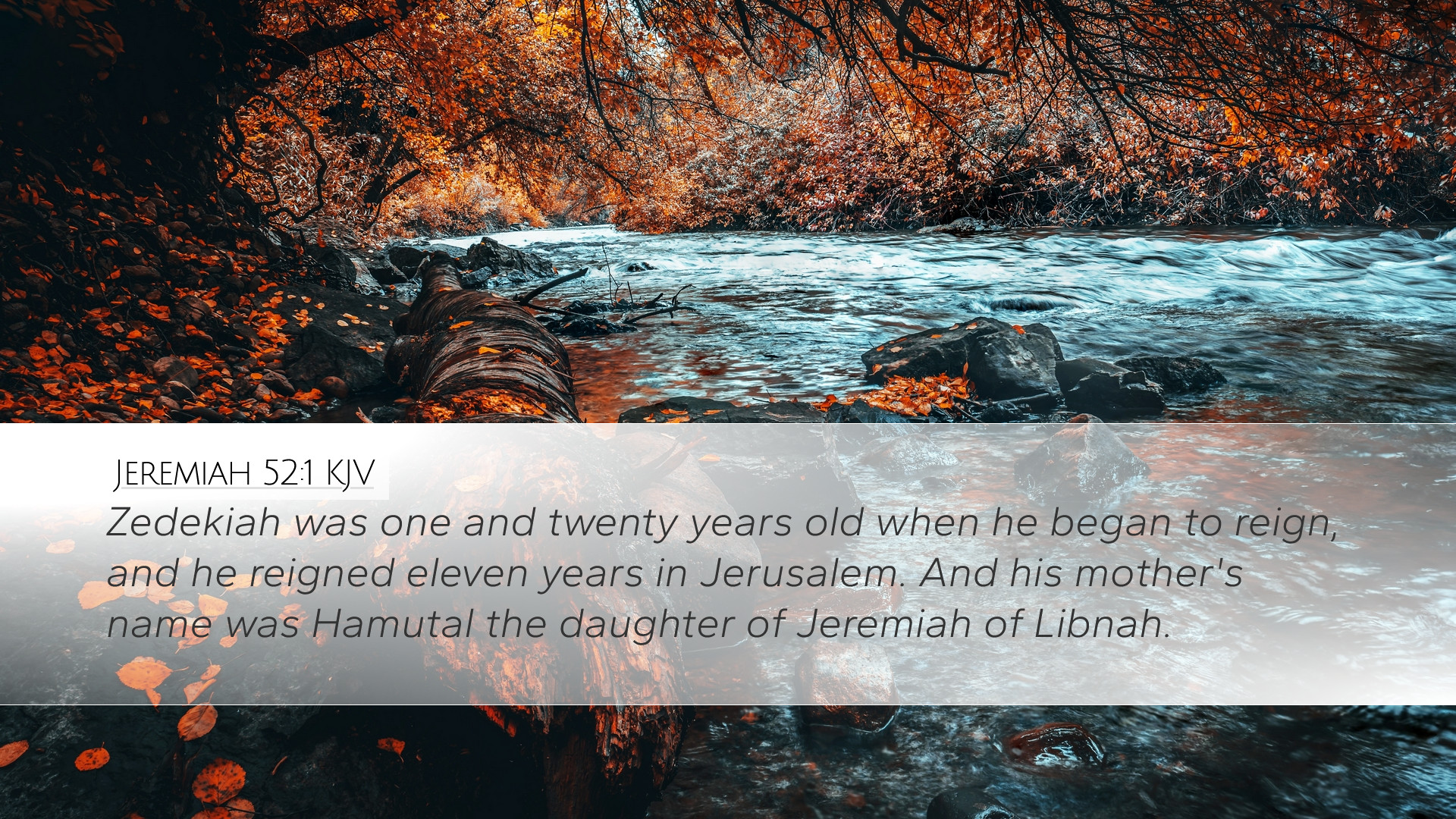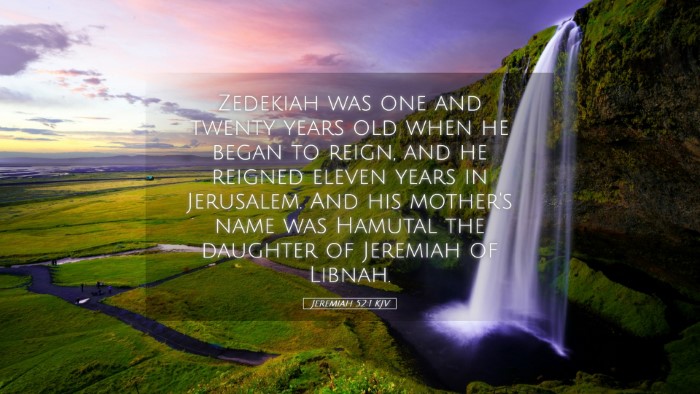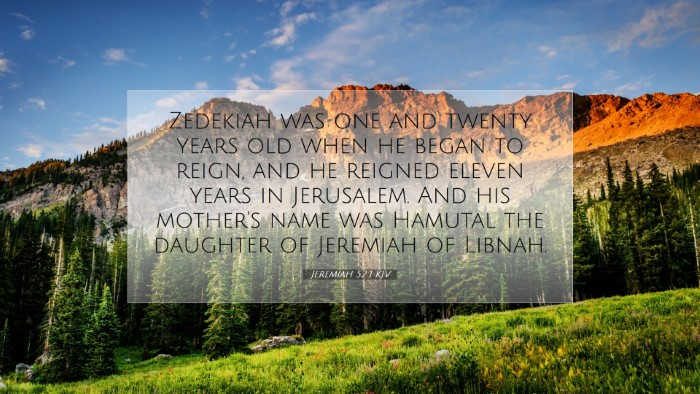Commentary on Jeremiah 52:1
Bible Verse: Jeremiah 52:1 - "Zedekiah was one and twenty years old when he began to reign, and he reigned eleven years in Jerusalem. And his mother's name was Hamutal the daughter of Jeremiah of Libnah."
Introduction
Jeremiah 52:1 serves as a historical and biographical introduction to King Zedekiah, the last king of Judah, detailing his age at ascension and the duration of his reign. This verse acts as a vital cornerstone for understanding the events that unfold within the context of the Babylonian siege and the eventual downfall of Jerusalem.
Historical Context
This period marks a critical juncture in Jewish history, occurring during the latter part of the 7th century BCE, a time of tragedy and upheaval as Jerusalem faced increasing threats from Babylon. The context surrounding Zedekiah’s reign is essential for grasping the prophetic warnings issued by Jeremiah and the consequent implications for Judah.
Insights from Public Domain Commentaries
Matthew Henry's Commentary
Matthew Henry emphasizes Zedekiah's youth and relative inexperience, noting that he was just twenty-one years old when he took the throne. His assessment highlights how youth can often accompany a lack of wisdom, especially in leaders during turbulent times. Zedekiah’s appointment was not one of merit but rather imposed by Nebuchadnezzar, showcasing the diminishing sovereignty of Judah.
Henry also points out that Zedekiah's reign lasted eleven years, a period marked by moral decay and rebellion against God’s directives articulated through the prophet Jeremiah. The mention of Zedekiah’s mother, Hamutal, serves to connect personal lineage to the broader socio-political narrative, indicating that even royal families could not escape the divine judgment awaiting Jerusalem.
Albert Barnes' Notes on the Bible
Barnes provides additional insights into the political backdrop, noting that Zedekiah’s designation as king was part of a larger strategy by Nebuchadnezzar, aimed at maintaining control over a subjugated people. His commentary reflects on the futility of rebellion against established authority, especially when God’s judgment was evident through the prophetic messages delivered to the people.
Additionally, he underscores the significance of Zedekiah’s mother's identity, portraying the royal family’s composite nature and the heritage it represents. This maternal connection reveals societal expectations for the king to uphold the legacy and religious practices of his ancestors, which were being compromised during his rule.
Adam Clarke's Commentary
Clarke delves into the implications of Zedekiah’s age and inexperience, suggesting that such a leadership choice often leads to indecisiveness and weakness. He notes that Zedekiah’s reign cannot be disassociated from unique characteristics of his character, shaping his decisions throughout his rule. Clarke sheds light on the idea of divine sovereignty, arguing that Zedekiah’s kingship, like preceding rulers’, was subject to divine providence, regardless of his human actions.
In conclusion, Clarke asserts that God's overarching plans often transcend human understanding, encapsulating the tragedy of Zedekiah’s reign as a demonstration of God’s relentless pursuit of Israel despite their obstinacy and disobedience.
Theological Reflections
The events surrounding Zedekiah’s reign offer valuable theological insights into the nature of leadership, obedience, and divine governance. Pastors and scholars are encouraged to view Zedekiah not merely as a historical figure but as a typological representation of failed leadership and the consequences of straying from God’s path.
- Leadership Lessons: Zedekiah’s inexperience is a cautionary tale for those in positions of authority, underscoring the importance of seeking wisdom and adhering to God’s commandments.
- The Role of Prophecy: The juxtaposition of prophecy against the backdrop of Zedekiah's reign accentuates the necessity of heeding divine warnings and the tragic outcomes of neglecting such guidance.
- Divine Justice: Zedekiah’s fate is indicative of God’s judgment, emphasizing that while there is grace, God also enforces justice upon nations and leaders who turn away from Him.
Conclusion
In summary, Jeremiah 52:1 encapsulates not only the historical narrative of Zedekiah's kingship but also serves as a profound lesson in the dynamics of faith, leadership, and the consequences of apostasy. Public domain commentaries shed light on the multifaceted aspects of this verse, providing readers, pastors, theologians, and scholars with the insights necessary to understand the scriptural context deeply.


